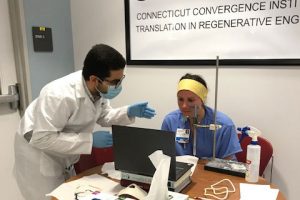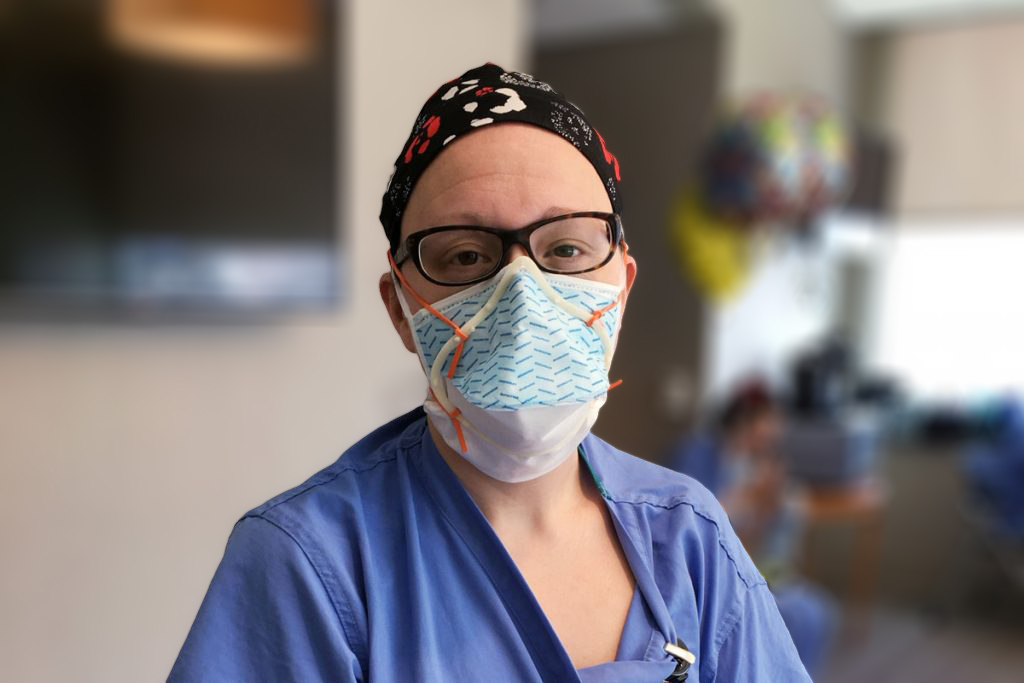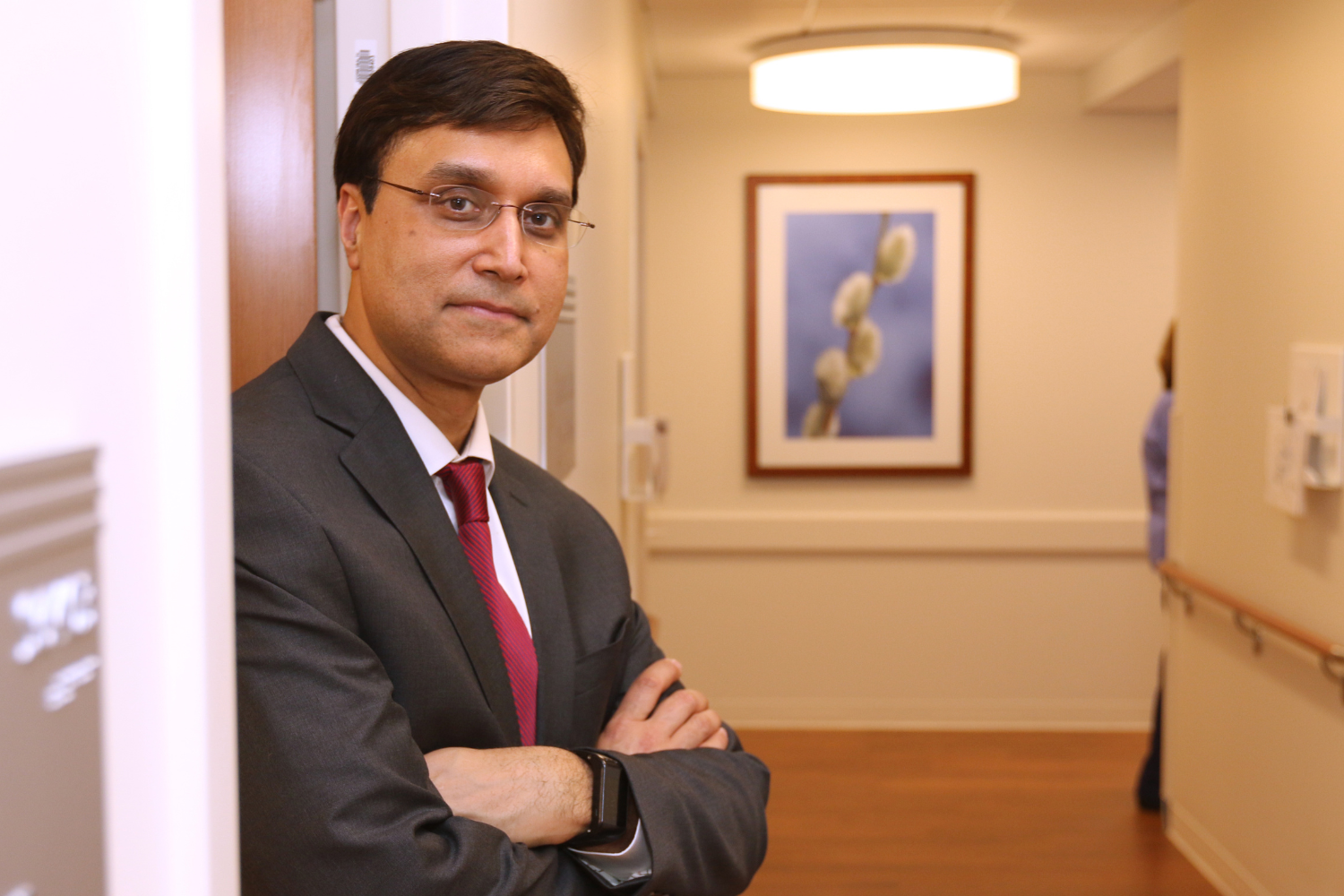Within six weeks of announcing a successful method to fabricate custom-fit mask frames to optimize protection from the spread of COVID-19, UConn has a licensing deal with a Connecticut manufacturer to produce them.
Connecticut Biotech, a startup company headquartered in South Windsor, aims to start marketing, manufacturing, and distributing 3D-printed mask frames under the brand Secure Fit later this year.
“This is an important technology that can help a lot of people by providing a specific way to make regular surgical masks more protective,” says Dr. Cato T. Laurencin, CEO of the Connecticut Convergence Institute for Translation in Regenerative Engineering. “It’s wonderful to see technology that started here in the state of Connecticut being developed by a Connecticut company.”
Laurencin and his scientists came up with a way to create add-ons for masks that enhance their effectiveness by improving their fit.

“The novel aspect is using 3D facial recognition technology on two-dimensional images to decipher the topography of the face and create a 3D mask frame,” says Amit Kumar, director of licensing and business development in UConn’s Office of the Vice President for Research.
“We are excited about this public-private partnership with UConn and the opportunity to use and build upon our vast experience to rapidly commercialize this much-needed device,” says Connecticut Biotech CEO Donald J. Vacarro. “We applaud Dr. Cato Laurencin’s team for developing a custom mask frame that secures filtration and positioning of most mask types.”
Consumers will be able to order Secure Fit mask frames directly at www.connecticutbiotech.com. The custom fit will require submitted photos of their face, one from the front and one from the side, using any camera phone. The mask frames will retail for around $40.
“I am thrilled to see our Connecticut Convergence Institute’s innovative approach to customizing protective masks taking the next step toward commercialization and societal impact,” says UConn President Tom Katsouleas. “This is a shining example of UConn’s ability to innovate and provide solutions for global problems.”
The concept of using facial-recognition software to pinpoint 3D printing specifications for custom fitting, for which UConn submitted a patent application in mid-April, is among a series of recent efforts by the Convergence Institute to address the COVID-19 pandemic.
“I think that the work that we’ve done shows the range of activities that we’ve created in terms of answering the call to provide solutions for COVID-19,” Laurencin says. “First is the understanding of the level of the complexity of the issue involved with our papers published on COVID-19 in the Black community, second, by creating a physical solution for COVID-19 in terms of our new masks systems that create a better, more comprehensive fit for individuals using them, and third is the creation of this new method for greeting that takes into account our new era of social distancing.”
Connecticut Biotech was founded earlier this year, seeking to use domestic and international marketing capacity to provide high-quality biotech solutions, reduce COVID-19’s impact on society, and create jobs in Connecticut.



